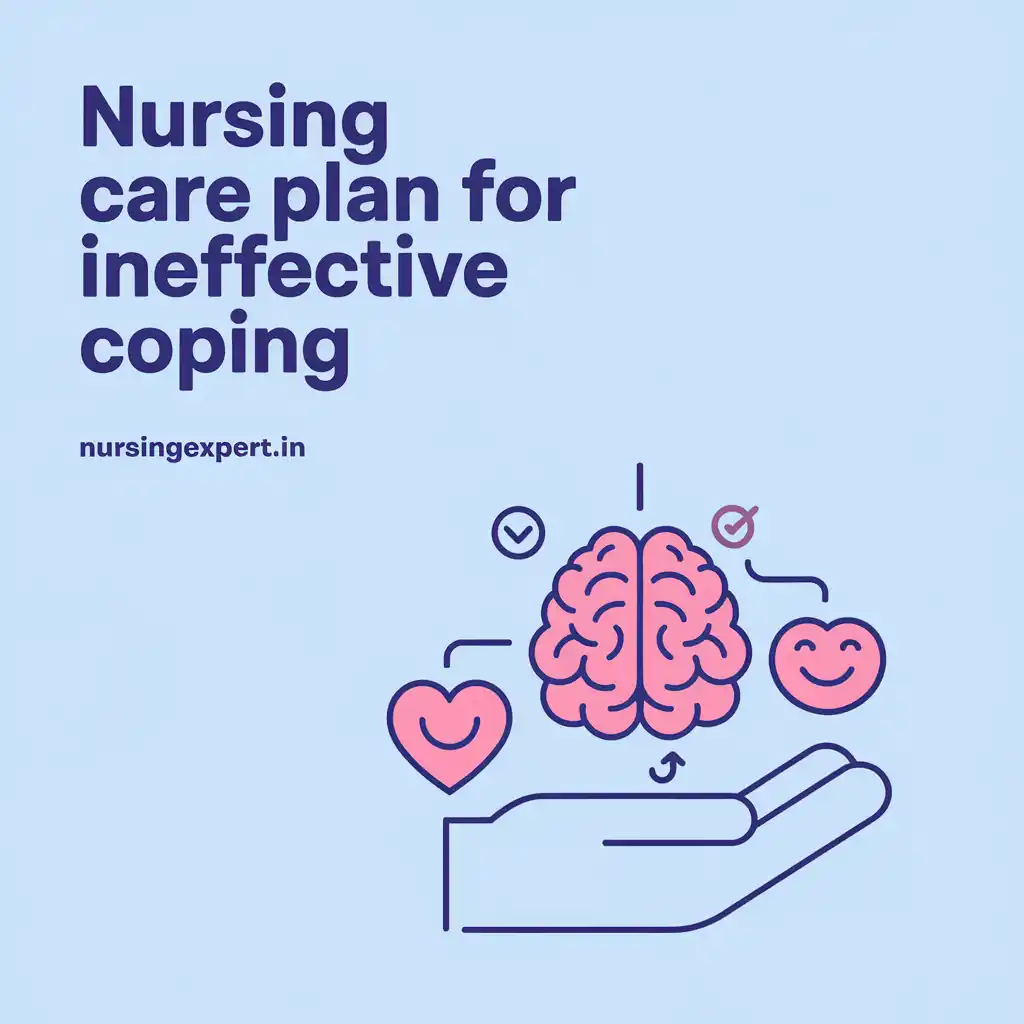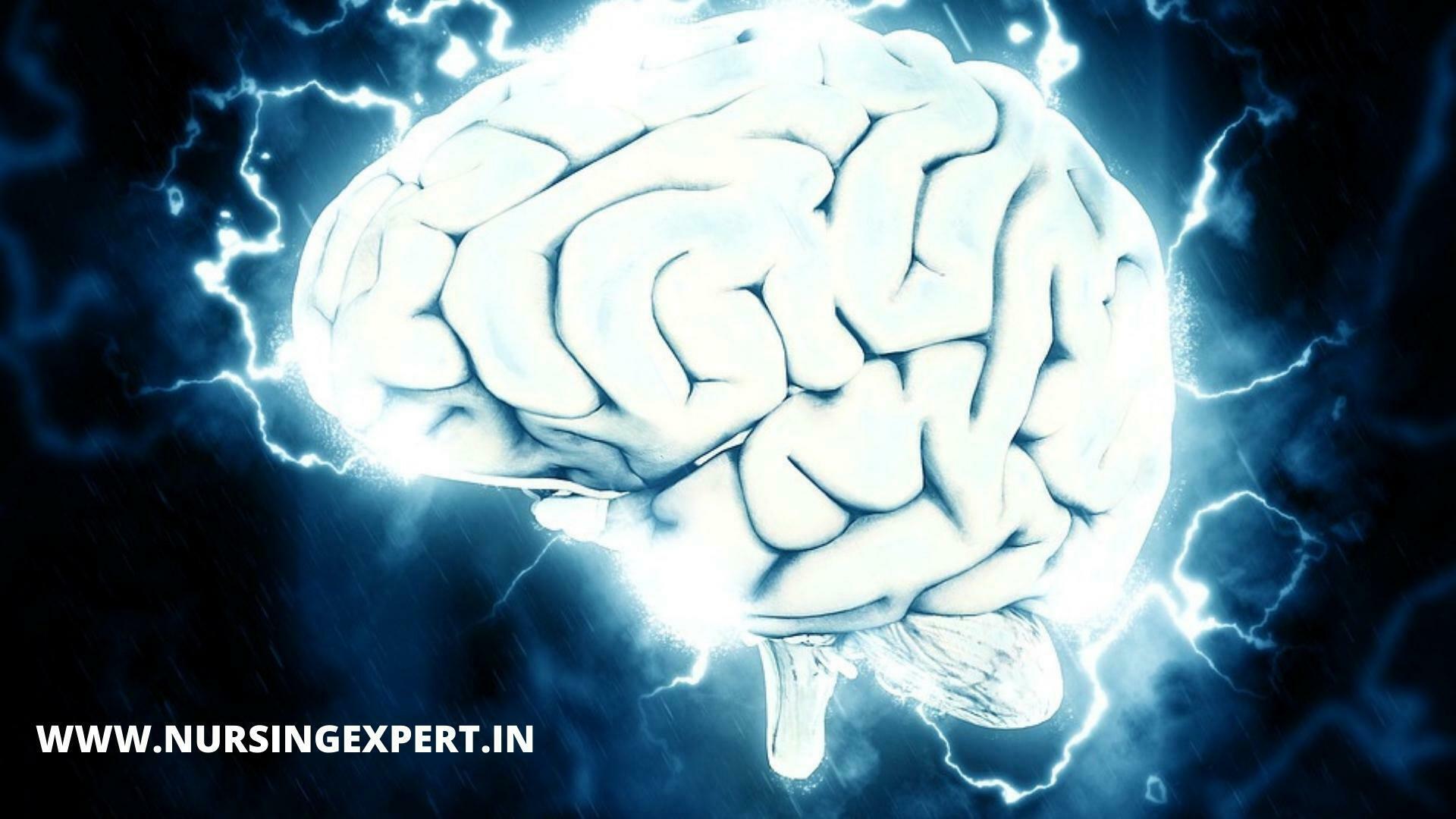Coping means the ways we deal with stress, sadness, or difficult situations. Sometimes, people do not use healthy or effective ways to handle stress. This is called ineffective coping. When someone uses ineffective coping strategies, they may feel overwhelmed, anxious, or depressed. A nursing care plan for ineffective coping helps nurses support patients in learning better ways to manage stress and improve their overall well-being.
Thank you for reading this post, don't forget to subscribe!
1. Introduction
Coping is how we deal with stress and problems. When people do not use good ways to handle stress, they are said to have ineffective coping. This can lead to feelings of sadness, anger, or anxiety, and it might affect how they take care of themselves. Nurses use a nursing care plan for ineffective coping to help patients learn better ways to manage their feelings and stress. It covers everything from understanding the condition to detailed steps in creating a care plan. There is a downloadable PDF version available for quick use in exams or clinical practice.


2. Understanding Ineffective Coping
Ineffective coping is when a person does not use healthy strategies to deal with stress or problems. Instead of handling difficult feelings well, they may feel overwhelmed or use actions that do not help, like avoiding problems or becoming very upset.
Why It Matters
Coping well is important because it helps us:
- Manage stress and emotions.
- Make good decisions during hard times.
- Stay healthy, both physically and mentally.
- Maintain good relationships with others.
When someone uses ineffective coping strategies, they might have trouble at school, work, or in their personal life. A nursing care plan for ineffective coping helps nurses work with patients to learn new, better ways to handle stress.
3. Causes of Ineffective Coping (Etiology)
Etiology means the causes of a condition. Ineffective coping can happen for many reasons:
- Stressful Life Events: Big changes like the loss of a loved one, divorce, or job loss can be very hard to manage.
- Chronic Illness: Ongoing health problems can make it difficult to cope.
- Mental Health Disorders: Conditions such as anxiety or depression often lead to poor coping.
- Lack of Social Support: When friends and family are not available, a person may feel alone.
- Poor Self-Esteem: Low self-confidence can make it hard to face challenges.
- Environmental Factors: Difficult living conditions, bullying, or financial problems can add extra stress.
Understanding these causes helps nurses choose the best ways to help the patient learn healthy coping strategies.
4. Signs and Symptoms of Ineffective Coping
When a person is not coping well, they might show certain signs and symptoms. Nurses look for these to understand the patient’s needs:
- Emotional Symptoms:
- Feelings of anxiety, sadness, or anger.
- Mood swings and irritability.
- Behavioral Symptoms:
- Avoiding problems or withdrawing from friends and family.
- Using harmful behaviors, such as self-harm or substance abuse.
- Physical Symptoms:
- Changes in appetite or sleep patterns.
- Fatigue or feeling overwhelmed.
- Cognitive Symptoms:
- Difficulty concentrating or making decisions.
- Negative thoughts or hopelessness.
Recognizing these symptoms early helps nurses to intervene and support the patient in learning better coping methods.
5. Nursing Diagnosis for Ineffective Coping
A nursing diagnosis is a statement that describes a patient’s problem based on the nurse’s observations. Using NANDA guidelines, common nursing diagnoses for ineffective coping include:
- Ineffective Coping related to excessive stress, anxiety, or a lack of support as evidenced by signs of emotional distress, avoidance behaviors, and poor decision-making.
- Risk for Ineffective Coping related to inadequate personal or social resources and unresolved life stressors.
- Disturbed Thought Processes related to overwhelming stress and anxiety, resulting in negative self-talk and difficulty in problem-solving.
These diagnoses help guide the nurse in planning specific, focused interventions to help the patient cope more effectively.
6. Nursing Interventions for Ineffective Coping
Nursing interventions are the actions nurses take to help the patient. Here are some key interventions for ineffective coping:
- Provide Emotional Support:
- Intervention: Offer a listening ear and encourage the patient to talk about their feelings.
- Why: Sharing feelings can reduce stress and help the patient feel supported.
- Teach Relaxation Techniques:
- Intervention: Teach methods such as deep breathing, meditation, or guided imagery.
- Why: Relaxation techniques can lower anxiety and help the patient manage stress.
- Encourage Healthy Coping Strategies:
- Intervention: Help the patient learn positive ways to cope, like journaling, exercise, or talking with friends.
- Why: Healthy coping methods improve emotional well-being and reduce the risk of harmful behaviors.
- Develop Problem-Solving Skills:
- Intervention: Use techniques like brainstorming and role-playing to teach effective problem-solving.
- Why: Learning to solve problems can boost the patient’s confidence and ability to handle stress.
- Provide Information and Education:
- Intervention: Explain what ineffective coping is and why healthy coping strategies are important.
- Why: Understanding the problem can empower the patient to make positive changes.
- Involve the Family:
- Intervention: Encourage family members to participate in counseling sessions or support groups.
- Why: A strong support system at home can help the patient cope better with stress.
- Refer to Mental Health Services:
- Intervention: Collaborate with psychologists or counselors for additional support.
- Why: Professional help can provide the patient with tools and strategies to manage stress more effectively.
7. Nursing Management of Ineffective Coping
Managing ineffective coping means putting all the interventions together in a well-organized plan. Key aspects include:
- Early Intervention: Quickly recognize signs of ineffective coping and begin support.
- Continuous Monitoring: Regularly check on the patient’s emotional state and stress levels.
- Education and Empowerment: Teach the patient healthy ways to manage stress and encourage self-care.
- Follow-Up Care: Schedule regular check-ups to monitor progress and adjust the care plan as needed.
- Teamwork: Work with other healthcare professionals, such as mental health specialists, to provide comprehensive care.
This management approach helps the patient develop more effective coping skills, reducing stress and improving their quality of life.
8. Sample Nursing Care Plan for Ineffective Coping
Below is a sample nursing care plan for ineffective coping. This plan is an example that can be modified for different patients.
| Assessment | Nursing Diagnosis | Goal/Expected Outcome | Intervention/Planning | Implementation | Rationale | Evaluation |
|---|---|---|---|---|---|---|
| Subjective Data: – Patient says, “I feel very overwhelmed and stressed.” Objective Data: – Observed tearfulness, restlessness, and irritability. | Ineffective Coping related to excessive stress and lack of support as evidenced by emotional distress and avoidance behaviors. | Short-Term: – Within 24 hours, the patient will verbalize one healthy coping strategy. Long-Term: – Within one month, the patient will demonstrate effective coping methods by engaging in stress-reducing activities. | Plan to offer emotional support, provide education on relaxation techniques, and arrange for counseling sessions. | Conduct one-on-one counseling sessions; teach deep breathing and meditation; encourage the patient to join a support group. | These interventions help reduce stress, improve emotional regulation, and promote healthy coping skills. | Patient reports reduced stress; demonstrates use of at least one relaxation technique; shows increased participation in support activities. |
| Subjective Data: – Patient states, “I don’t know how to handle my problems.” Objective Data: – Patient appears confused and withdrawn. | Risk for Ineffective Coping related to lack of knowledge and skills in managing stress. | Short-Term: – Within 48 hours, the patient will identify three healthy coping strategies. Long-Term: – Within one month, the patient will apply these strategies independently in stressful situations. | Develop an education plan that includes written materials and visual aids on coping strategies; schedule group education sessions. | Provide handouts on coping skills; hold interactive sessions using role-playing and discussion; encourage questions. | Education empowers the patient to understand and adopt healthier coping mechanisms, leading to better stress management. | Patient can list three coping strategies; shows improvement in managing stress during follow-up visits. |
| Subjective Data: – Family reports that the patient often isolates and avoids social interactions. Objective Data: – Observations of social withdrawal and limited communication with others. | Impaired Social Interaction related to ineffective coping and emotional distress as evidenced by social withdrawal and isolation. | Short-Term: – Within 24 hours, the patient will participate in one group activity. Long-Term: – Within one month, the patient will engage in social interactions with peers and family, demonstrating improved communication. | Plan to include social skills training and encourage participation in group therapy sessions. | Arrange for the patient to attend support group meetings; use role-playing to practice social interactions; encourage family involvement. | Social interaction helps reduce feelings of isolation and improves emotional well-being, supporting overall effective coping. | Increased participation in group activities; positive feedback from family regarding improved social behavior. |
9. Patient and Family Education
Education is essential to help patients learn how to manage stress in healthy ways. Nurses should:
- Explain Ineffective Coping:
- Clearly describe what ineffective coping is and how it can affect both mental and physical health.
- Teach Healthy Coping Strategies:
- Introduce simple techniques such as deep breathing, meditation, and engaging in hobbies.
- Use Visual Aids:
- Provide brochures, handouts, or videos that show healthy ways to manage stress.
- Encourage Family Support:
- Involve family members in educational sessions so they can help the patient practice these strategies at home.
- Schedule Follow-Up:
- Ensure regular check-ins with the patient and family to reinforce learned skills and adjust the care plan if needed.
10. Interdisciplinary Collaboration
Nursing care for ineffective coping is best managed with a team approach. Nurses should work with:
- Psychologists/Counselors:
- Provide professional counseling and therapy sessions.
- Social Workers:
- Help connect the patient with support groups and community resources.
- Physicians/Primary Care Providers:
- Monitor the patient’s overall health and adjust any medications that may affect mood and stress.
- Patient Educators:
- Reinforce healthy coping techniques and support self-management strategies.
This collaboration ensures that the patient receives well-rounded care and support from multiple professionals.
11. Downloadable Nursing Care Plan for Ineffective Coping PDF
For a detailed, printable version of this nursing care plan, download our Nursing Care Plan for Ineffective Coping PDF. This resource is designed for quick reference in clinical settings and for exam preparation.
12. Frequently Asked Questions (FAQs)
1. What is ineffective coping?
A: Ineffective coping is when a person does not handle stress well. Instead of using healthy ways to manage stress, they may feel overwhelmed, anxious, or depressed.
2. What are common signs of ineffective coping?
A: Signs include anxiety, mood swings, social withdrawal, poor decision-making, and sometimes harmful behaviors such as self-harm or substance abuse.
3. What is a NANDA nursing diagnosis for ineffective coping?
A: A common NANDA diagnosis is “Ineffective Coping” related to excessive stress and lack of adequate support as evidenced by emotional distress, avoidance behaviors, and difficulty managing stress.
4. What are key nursing interventions for ineffective coping?
A: Key interventions include providing emotional support, teaching relaxation techniques, encouraging healthy coping strategies, offering problem-solving guidance, and involving family in care.
5. Why is patient and family education important in managing ineffective coping?
A: Education helps the patient and family understand how to manage stress better, reduces anxiety, and improves overall well-being. It also encourages the use of healthy coping strategies.
13. Conclusion
A comprehensive nursing care plan for ineffective coping is essential for helping patients manage stress in a healthy way. By using a step-by-step approach that includes thorough assessment, clear nursing diagnoses, specific goals, targeted interventions, and continuous evaluation, nurses can support patients in developing better coping skills.
Patient and family education is a crucial part of this care plan, as it empowers everyone involved to understand the problem and work together towards better mental health. Interdisciplinary collaboration further enhances care, ensuring that the patient receives support from various experts.
This guide, along with the downloadable PDF, is a valuable resource for nursing students and professionals alike. It helps simplify complex concepts, making it easier for anyone to understand and apply effective coping strategies in clinical practice.
14. References and Sources
- NANDA International. (2022). NANDA Nursing Diagnoses: Definitions and Classifications. Retrieved from https://www.nanda.org/
- American Psychological Association (APA). (2023). Stress and Coping. Retrieved from https://www.apa.org
- National Institute of Mental Health (NIMH). (2023). Stress: Coping with Everyday Problems. Retrieved from https://www.nimh.nih.gov
- Centers for Disease Control and Prevention (CDC). (2023). Mental Health and Coping. Retrieved from https://www.cdc.gov
- Mayo Clinic. (2023). Stress Management: Techniques for Coping. Retrieved from https://www.mayoclinic.org


